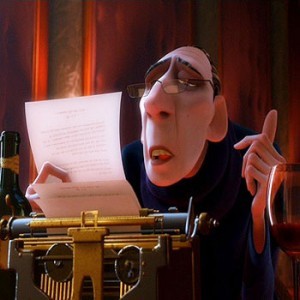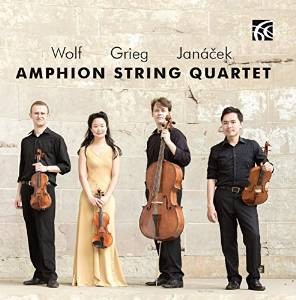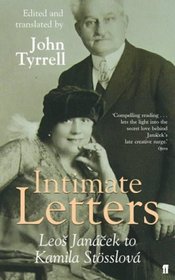 I reviewed several hundred concerts and opera performances in Kansas City and New York during the first half of my career as a professional writer. After I became the drama critic of The Wall Street Journal, though, I started going to so many plays that it was hard for me to find the time to see anything else. By then I knew from experience that no matter how hard you try, you simply can’t see all the things you want to see, and that if you see too many, you won’t properly appreciate any of them. If you doubt it, try spending a whole day in an art museum. No matter how richly stocked it is with masterpieces, a time will come—usually sooner than you expect—when you’re no longer seeing any of them. All you’re doing is looking at them, which isn’t the same thing.
I reviewed several hundred concerts and opera performances in Kansas City and New York during the first half of my career as a professional writer. After I became the drama critic of The Wall Street Journal, though, I started going to so many plays that it was hard for me to find the time to see anything else. By then I knew from experience that no matter how hard you try, you simply can’t see all the things you want to see, and that if you see too many, you won’t properly appreciate any of them. If you doubt it, try spending a whole day in an art museum. No matter how richly stocked it is with masterpieces, a time will come—usually sooner than you expect—when you’re no longer seeing any of them. All you’re doing is looking at them, which isn’t the same thing.
Something had to give, so I stopped going to classical concerts save at increasingly distant intervals. The last one I attended was in 2012, during my stay at the MacDowell Colony. It was a wonderful experience, but it didn’t tempt me to change my ways, least of all to hear yet another Rachmaninoff Three. The truth is that I no longer feel the need to hear public performances of the standard repertoire, no matter how good they may be. Once you reach a certain age, you’re likely to decide, as I have, that life’s too short to waste any more of it splitting interpretative hairs. If I want to hear, say, the Chopin Barcarolle, I put on this recording, which is almost certainly superior to any performance I’m ever likely to hear at Carnegie Hall, or anywhere else in the known universe. Yes, it’s within the realm of possibility that somebody may someday play the piece even better, but…so what? I have better things to do than hold my breath waiting for the second coming of Dinu Lipatti.
 That said, I really am a devout believer in the superiority of live music to the canned kind, and it also happens that Mrs. T loves going to classical concerts and regularly bemoans the fact that we don’t do it anymore. So when I heard that the Amphion String Quartet was performing on Sanibel Island last Thursday, I got on the phone and ordered two tickets. This was, to put it mildly, an uncharacteristic piece of behavior on my part, for not only did I know nothing about the Amphion Quartet, but I didn’t even know what the program was.
That said, I really am a devout believer in the superiority of live music to the canned kind, and it also happens that Mrs. T loves going to classical concerts and regularly bemoans the fact that we don’t do it anymore. So when I heard that the Amphion String Quartet was performing on Sanibel Island last Thursday, I got on the phone and ordered two tickets. This was, to put it mildly, an uncharacteristic piece of behavior on my part, for not only did I know nothing about the Amphion Quartet, but I didn’t even know what the program was.
Having stuck my neck out, I got curious, poked around on Facebook, found a page for the group, and sent them a direct message asking what they’d be playing. A couple of hours later, I got a reply—Haydn’s “Bird” Quartet, Leoš Janáček’s “Intimate Letters” Quartet, and the Grieg G Minor Quartet—and whooped with joy. No matter how well or poorly they played it, this was my kind of program, and I was happily surprised at the unexpected prospect of hearing it at an island resort on the Gulf of Mexico.
On Thursday we went at the appointed hour to Sanibel’s “concert hall,” a nondescript multipurpose auditorium, presented our tickets, and found ourselves a pair of seats down front. Shortly thereafter, four musicians came on stage, instruments in hand, and started playing. My head automatically started to fill up with descriptive phrases, the residual reflex of half a lifetime of reviewing. Cut it out, I told myself. You’re not working tonight. Shut up and listen. So I did, and reveled anew in the experience, heightened by my prolonged hiatus from concertgoing, of listening to a group of immensely talented youngsters play three masterworks, none of them well known and two of which, the Grieg and Haydn quartets, were entirely new to me.
 Best of all was the Janáček, a slashingly intense and desperate piece that was prefaced by a few words from David Southorn, one of the two violinists, who read to the audience a letter that the octogenarian composer wrote in 1928 to Kamila Stösslová, the woman who inspired him to write it. Janáček had just heard the quartet, which is a musical portrayal of their relationship, for the very first time:
Best of all was the Janáček, a slashingly intense and desperate piece that was prefaced by a few words from David Southorn, one of the two violinists, who read to the audience a letter that the octogenarian composer wrote in 1928 to Kamila Stösslová, the woman who inspired him to write it. Janáček had just heard the quartet, which is a musical portrayal of their relationship, for the very first time:
I listen. Did I write that? Those cries of joy, but what a strange thing, also cries of terror after a lullaby. Exaltation, a warm declaration of love, imploring; untamed longing. Resolution, relentlessly to fight with the world over you. Moaning, confiding, fearing. Crushing everything beneath me if it resisted. Standing in wonder before you at our first meeting. Amazement at your appearance; as if it had fallen to the bottom of a well and from that very moment I drank the water of that well. Confusion and high-pitched song of victory: “You’ve found a woman who was destined for you.” Just my speech and just your amazed silence. Oh, it’s a work as if carved out of living flesh. I think that I won’t write a more profound and a truer one.
Two months later, he was dead.
Having turned off my mental reviewing machine, I can tell you nothing specific about the performances, merely that Mrs. T and I found them to be fabulously good, enough so that I downloaded the Amphion Quartet’s newly released debut album, which contains the Grieg and Janáček quartets, as soon as we came home. And when we got to Siesta Key on Saturday, I checked out the Sarasota Orchestra’s website and saw that Stephen Hough, a pianist whom I admire extravagantly, would be playing the Beethoven G Major Concerto, a piece that I adore, this coming weekend.
“Do you think you might possibly like to go to another concert on Sunday afternoon?” I asked Mrs. T.
“You bet!” she said.
* * *
The Amphion Quartet played the same works by Haydn, Janáček, and Grieg at New York’s Alice Tully Hall on Sunday. The New York Times review of that concert is here.
The Amphion Quartet performs Hugo Wolf’s Italian Serenade:
The Pacifica String Quartet plays the first movement of Janáček’s “Intimate Letters” Quartet on WNYC’s Soundcheck in 2009:


